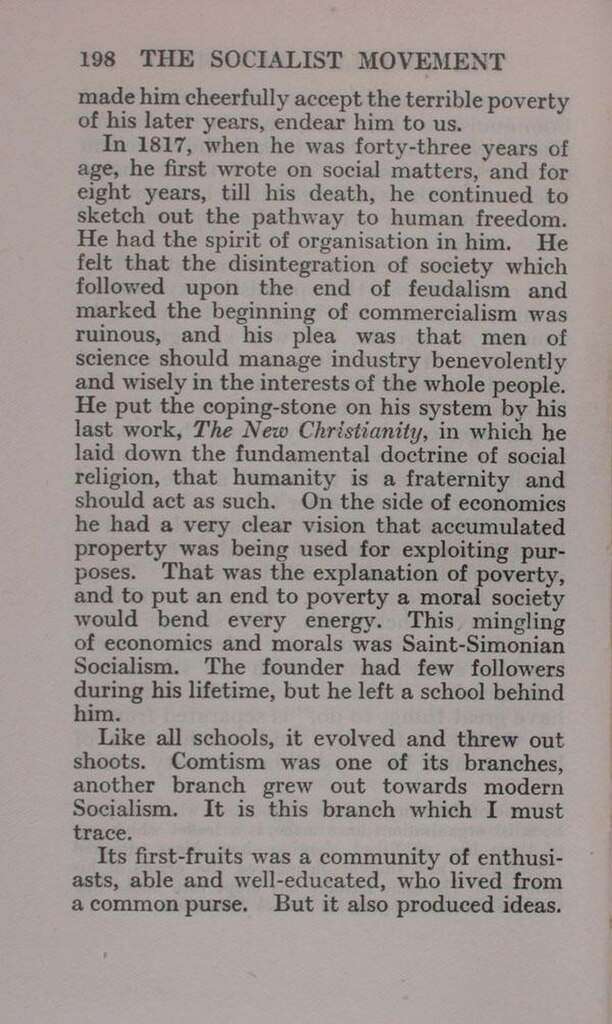made him cheerfully accept the terrible poverty of his later years, endear him to us.
In 1817, when he was forty-three years of age, he first wrote on social matters, and for eight years, till his death, he continued to sketch out the pathway to human freedom. He had the spirit of organisation in him. He felt that the disintegration of society which followed upon the end of feudalism and marked the beginning of commercialism was ruinous, and his plea was that men of science should manage industry benevolently and wisely in the interests of the whole people. He put the coping-stone on his system by his last work, The New Christianity, in which he laid down the fundamental doctrine of social religion, that humanity is a fraternity and should act as such. On the side of economics he had a very clear vision that accumulated property was being used for exploiting purposes. That was the explanation of poverty, and to put an end to poverty a moral society would bend every energy. This mingling of economics and morals was Saint-Simonian Socialism. The founder had few followers during his lifetime, but he left a school behind him.
Like all schools, it evolved and threw out shoots. Comtism was one of its branches, another branch grew out towards modern Socialism. It is this branch which I must trace.
Its first-fruits was a community of enthusiasts, able and well-educated, who lived from a common purse. But it also produced ideas.
